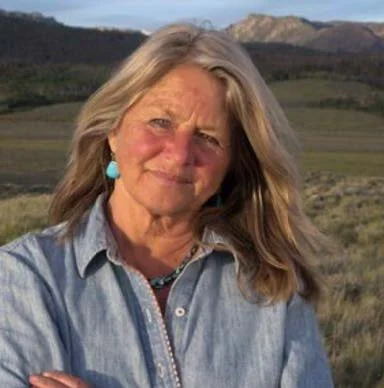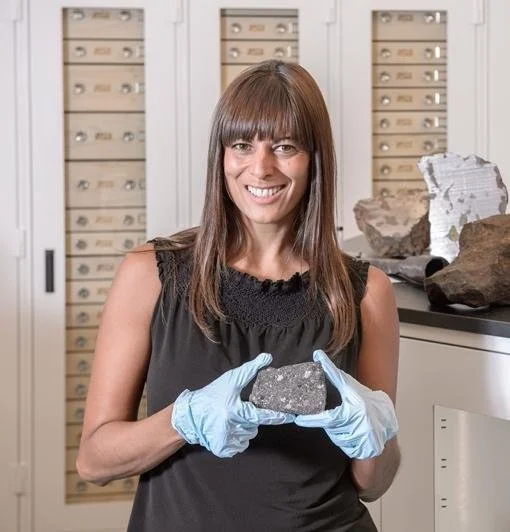WINGS Women in the News
UPDATES ON THE REMARKABLE WORK AND ADVENTURES OF WINGS FELLOWS AND FLAG CARRIERS
2006 Fellow Janine Benyus (Humanity)
Janine Benyus explains Biomimicry in September 2022 video by the Ellen MacArthur Foundation
Janine co-founded The Biomimicry Institute to embed “human design inspired by the natural world” in formal education and informal spaces such as museums and nature centers. Last month, Janine was awarded the annual 2022 RSA Bicentenary Medal for her “remarkable contribution to regenerative design.” The RSA added, “She has defined a way of innovating in harmony with nature which has inspired designers and innovators all over the world and, critically, made an important contribution to healing the story of separation between humans and nature which has resulted in our current ecological crisis.”
A pioneer in the field, Janine wrote Biomimicry: Innovation Inspired by Nature to encourage designers to approach each new challenge asking, “What would nature do?” This premise has inspired countless ideas that draw on the genius of nature to overcome challenges in a sustainable and regenerative way. Examples include solar cells that mimic leaves, bullet trains that use aerodynamics inspired by kingfishers, and surfaces that emulate the pattern of Galapagos sharks’ skin to repel bacteria. The Biomimicry Institute hosts global biomimicry design challenges on massive sustainability problems, mobilizing tens of thousands of students and practitioners through the Global Biomimicry Network and AskNature.org, an award-winning bio-inspiration database for inventors. The Biomimicry Institute has been awarded €2.5 million to lead a multi-year initiative called Design for Decomposition. By embracing true decomposition – the way leaves break down into soil to build healthy ecosystems – the initiative aims to demonstrate scalable new pathways for fashion waste.
2011 Fellow Gretel Ehrlich
Gretel was inducted into the National Cowgirl Museum and Hall of Fame. The author of 15 books, Gretel is a nature writer, novelist, essayist and poet published widely in magazines such as Antaeus, Aperture, Architectural Digest, The Atlantic, Harper’s, Life, National Geographic Magazine, National Geographic Adventure, National Geographic Traveler, the New York Times Magazine, Orion, Shambhala, The Sun, Time, Tricycle, among many others. Her work has been anthologized in Best Essays Of The Century, Best Essays Of 1988, Best Spiritual Essays, Best Travel Essays, The Nature Reader, Nature Writing, and many others. Her latest work, Unsolaced, examines her travels in nature around the world and provides meaningful insight on a changing climate.
2008 Fellow Vera Kingeekuk Metcalf (Sea)
Photo courtesy of Vera Metcalf
Vera co-authored a new chapter in NOAA’s annual Arctic Report Card, released last week, that highlights Indigenous knowledge and the impact of climate change on people living in the Arctic. The director of the Eskimo Walrus Commission, Vera, who is Yup’ik, told KTOO/Juneau, “We’re experiencing more and more sea ice that is weaker. It affects our traditional hunting seasons, which seem to be dissolving and blending together.” The new Arctic Report Card chapter includes in its highlights section the need for diverse, complex collaborations across knowledge systems and disciplines with on-the-ground observations from Indigenous knowledge holders: “Living and innovating in Arctic environments over millennia, Indigenous Peoples have evolved holistic knowledge providing resilience and sustainability. Indigenous expertise is augmented by scientific abilities to reconstruct past environments and to model and predict future changes. Applying the combined understanding of Indigenous and scientific experts will be important if decision makers (from communities to governments) are to help mitigate and adapt to a rapidly changing Arctic.”
2003 Fellow Meenakshi Wadhwa (Air and Space)
Photo courtesy of ASU
Meenakshi, director of Arizona State University’s School of Earth and Space Exploration, is a planetary scientist and isotope cosmochemist focused on investigating the time scales of processes in the early Solar System. She is also NASA’s principle scientist for the Mars Sample Return program, which uses robotic systems and a Mars ascent rocket to collect and send samples of Martian rocks, soils and atmosphere to Earth for detailed chemical and physical analysis. At a press briefing last Friday, Meenakshi said “We’re coming up on this really big and exciting milestone,” where the Mars 2020 Rover, Perseverance, next week may start caching test-tube-size cores of its first Martian rock and dirt samples in a safe depot for return to Earth by future spacecraft. Perseverance has been collecting the cores since February 2021, kicking off a new era of space exploration collecting scientifically high-value rock samples that might hold evidence of past life on Mars.








